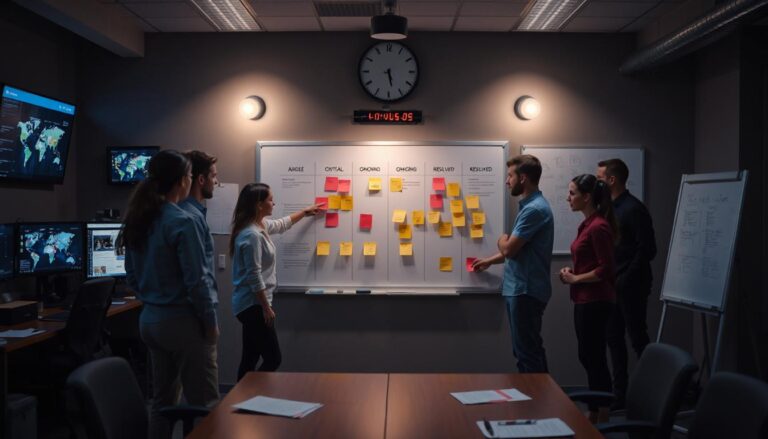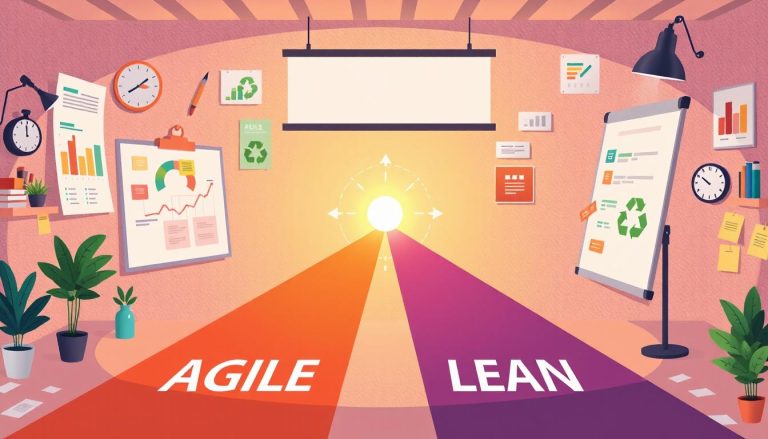The Agile Mentor: Guiding Teams to Greatness
Grasping the Essence of Agile Mentorship
Agile mentorship embodies a futuristic approach towards leading a team. It transcends beyond simply controlling a team to mentoring them, promoting growth, and encouraging ownership. Let’s unravel the art of agile mentorship and tap into its potential in guiding teams towards greatness.
Understanding the Role of an Agile Mentor
A skilled Agile mentor plays a pivotal role in the success of an agile team. They lead by example and provide guidance, but also strive to instill a sense of independent team dynamics. They master the art of balance, ensuring they provide direction while also creating space for innovation and creativity. The mentor isn’t a dictator, but rather a facilitator – a guiding light that helps illuminate the path to productivity and success.
Rather than managing with an iron fist, they mentor with a smile and a genuine desire to see their team succeed. It’s not about being the boss; it’s about being the champion who propels the team forward.
Qualities of an Effective Agile Mentor
There isn’t a one-size-fits-all profile for an effective agile mentor. However, certain key qualities and attributes can increase their effectiveness in this role.
Leadership:
It’s less about authority and more about leadership skills and fostering an environment of trust and respect. The mentor guides the team, creates a motivational ambience, and champions a positive environment.
Empathy:
Good leaders understand the importance of empathy. Agile mentors need to be mindful of team members’ motivations, aspirations, and challenges, adjusting their guidance strategies accordingly.
Team Player:
An Agile mentor is part of the team, leveraging their expertise while also being open to team members’ ideas and feedback. They preserve team dynamics and elevate team performance.
Patient Listener:
Listening to input and ideas from team members not only promotes a culture of inclusion but also brings fresh perspectives to the table. Through active listening, mentors can cultivate solutions that truly reflect the collective intelligence of the team.
Continuous Learner:
A mentor isn’t an all-knowing entity, but someone who continues to learn and evolve. They have the humility to accept that there’s always something new to learn and the courage to adapt accordingly.
Mentoring Strategies for Agile Success
Becoming an effective agile mentor takes more than possessing the right qualities. It requires the implementation of strategic and thoughtful approaches that cater to both agile novices and veterans.
Training & Orientation:
For Agile neophytes, assimilating into a fast-paced, flexible work environment can be daunting. Structured Agile training sessions can provide a sound groundwork, setting the right expectations for new members.
Demonstrate by Doing:
Show, don’t tell. The power of demonstrated examples can’t be overemphasized. Mentors need to lead by example, embodying the principles of Agile in their actions.
Cultivate a Safe Environment:
A culture of psychological safety is crucial in an Agile environment. Here, team members feel liberated to express their opinions, make mistakes, learn, and evolve.
Reflection Sessions:
Organize regular sessions where team members can reflect on their actions, mistakes, and accomplishments. These sessions help the team learn from their past, making future endeavors more effective.
The Mentoring Process: A Step-By-Step Guide
Crafting an effective mentoring process involves a thoughtful sequence of steps. Here’s a general blueprint of such an approach:
- Share the Vision: Paint a vivid picture of the ultimate goal and how each team member contributes to that vision.
- Assess Strengths and Weaknesses: Understand team members’ unique abilities, their strengths, and areas that need improvement.
- Customize Training: Devise personalized training modules based on each member’s needs.
- Review Progress Regularly: Keep track of each team member’s progress, provide constructive feedback, and appreciate hard work.
- Realign: Reflect on and learn from past actions, realigning strategies based on varied experiences and outcomes to foster continual improvement.
The Long-Term Impact of Agile Mentorship
Effective Agile mentorship can have profound, long-term impacts on a team’s performance. It fosters a culture of constant learning, growth, ownership, and team collaboration. It encourages team members to take on responsibilities and navigate challenges proactively. Moreover, the establishment of trustful relationships stimulates improved performance, productivity, and team satisfaction.
In a nutshell, an Agile mentor is the cornerstone of Agile success, guiding the team with wisdom and fostering a culture of growth and shared ownership.






